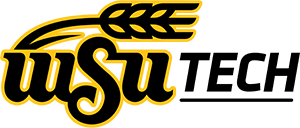This course is designed to introduce the student to the fundamental concepts of electricity (Ohm’s Law) that involve direct current (dc), including series and parallel resistive circuits, system testing using a multimeter, common components in electrical circuits and how to read an interpret electrical schematic diagrams.
This course provides the student an understanding of how to properly handle and care for various types of borescopes.
Supervising the work of others requires a range of skills, from planning, delegating, instructing, monitoring, evaluating and giving constructive feedback. Supervising does not come naturally to everyone, and all supervisors tend towards their own particular style, with their own particular strengths and weaknesses. While good soft skills are also important for employees, they are critical for managers. A number of soft skills have been identified as essential to be successful. We can provide training to update and improve the skills of your management and supervisory team. A good management team can increase employee engagement, improve employee performance and help you achieve organizational goals.
This course provides an introduction to basic sealing principles; including tools, sealant selection, application processes and cleaning methods.
Customized welding programs can promote knowledge and skill in cutting, shielded metal art welding (SMAW), gas metal art welding (GMAW), gas tungsten arc welding (GTAW) and/or oxy-acetylene cutting and welding. Programs include classroom and lab instruction in safety, tools and materials used in the various forms of welding, machine adjustments and rod selection, skill requirements for various welding positions, weld testing and qualifications and fabrication and layout of various welding projects.
This course is an introduction to reading and interpreting blueprints. Topics include; blueprint views, lines, dimensions and tolerances and blueprint symbols. Students learn a systematic approach to reading blueprints.
GD&T builds on basic blueprint knowledge, teaches the symbols, terminology and rules of Geometric Tolerancing as prescribed in the current standard (ASME Y14.5-2009). GD&T is intended for all those who use GD&T to design, produce and inspect parts including mechanical engineers, designers, managers, production planners, inspectors, machinists, supplier quality personnel, etc.
Human Factors provides students with an overview of the impact of human factors on the safe operation and maintenance of an aircraft. Topics will include a review of most common human factors that can negatively impact the functioning of an aircraft and how to avoid these errors. Human Factors training can be customized to emphasize general manufacturing or machine shop safety.
This course provides Aerospace Coating Technicians and Industrial Painters with real time training for coatings techniques using state of the art virtual technology. New and experienced technicians practice application techniques in an environment that provides immediate feedback on transfer efficiencies, overlap and cost. Training sessions can be designed so that upon completion of the training, the participant will receive a certificate that meets EPA CFR 40 Part 63 Subpart NESHAP6H requirements.
This course provides the student the skills and knowledge to succeed in the aircraft manufacturing and service industry. Instruction includes the fundamentals of blueprint reading, precision measurements, fundamentals of assembly, meeting manufacturing standards, use of common aircraft sheet metal tools, identifying and installing fasteners and steps necessary to maintain skin quality.

